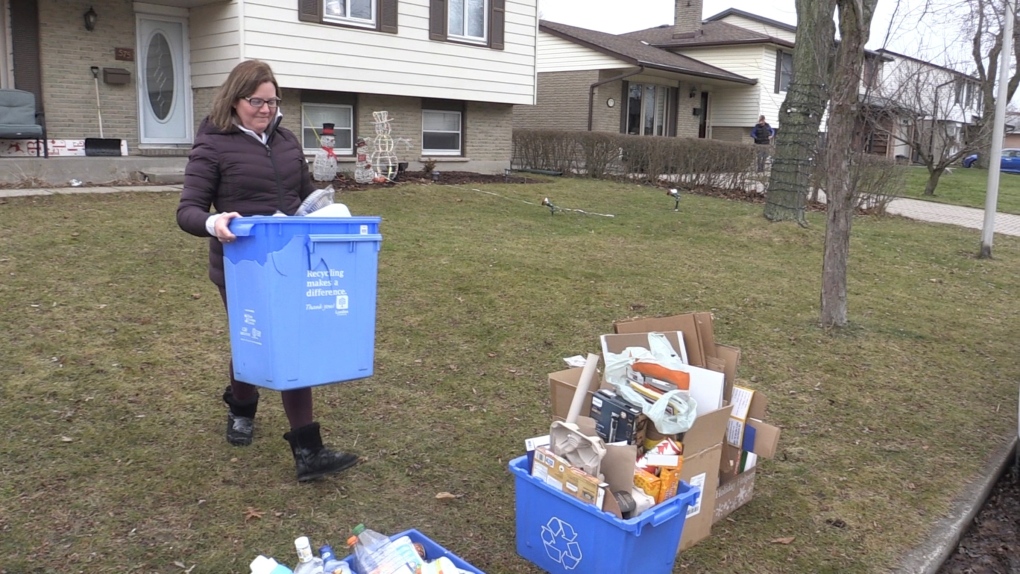Long awaited changes to residential waste collection are poised to begin in the second half of this year.
London’s confusing six day rotating schedule for curbside garbage collection will end, and same day collection will start as part of the planned launch of green bins for organic waste this fall.
A consistent collection day would be welcomed by many Londoners, including Dana Clark who lives in the Westmount neighbourhood.
“Our neighbour to the right there, he saves our sanity. We come out look if he’s got it out we know it’s time to put it out!” Clark admitted.
City hall has initiated a request for proposals (RFP) for companies interested in processing green bin waste starting later this year.
Documents associated with the bid/tender process confirm several details of the green bin program:
- Two-wheeled green bins will hold 45L of organic waste
- Paper/compostable bin liners must be accepted by processing plant
- Green bins and blue boxes will be collected weekly, remaining trash every two weeks
- An estimated 14,000 to 20,000 tonnes of organic matter will be collected each year
Originally slated to roll out in fall 2021, green bins have been delayed twice by the COVID-19 pandemic’s ongoing supply chain issues.
 Dana Clark takes a blue box to her curb in London, Ont. on Jan. 5, 2023. (Daryl Newcombe/CTV News London)
Dana Clark takes a blue box to her curb in London, Ont. on Jan. 5, 2023. (Daryl Newcombe/CTV News London)
Last summer, a report to council explained that the manufacturer of 26 specialized garbage collection trucks could not estimate a manufacturing date for half of the vehicles ordered by the city.
“We’re still waiting and working with our truck manufacturer right now to get the final build scheduled for the last 13 trucks that are needed for the start up,” explained Director of Climate Change, Environment, and Waste, Jay Stanford.
Stanford will receive an update from the manufacturer in a few weeks.
Meanwhile, the municipal share of the blue box recycling program will start shifting onto producers of the waste — saving taxpayers millions each year.
Collection and processing costs are currently split 50/50 between the municipality and companies that manufacture blue box waste.
On July 1, producers gradually start taking full responsibility for funding blue boxes in Ontario.
A report to the Civic Works Committee reads, “Preliminary estimates suggest that between $500,000 and eventually more than $4 million per year in 2026 will be saved.”
Stanford added that shifting the cost onto producers may motivate a reduction in the quantity of waste created at the source.
“It is a system that industry will be paying for, so they’ll be using all their ingenuity and all their science to make it a much stronger system,” he said.

Post a Comment